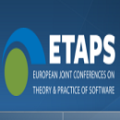This volume contains the proceedings of the 1st International Workshop on Methods and Tools for Rigorous System Design (MeTRiD 2018), held on the 15th of April, 2018 in Thessaloniki, Greece as part of ETAPS 2018, the European Joint Conferences on Theory and Practice of Software. The term "Rigorous System Design" (RSD) denotes the design approach that is based on a formal, accountable and iterative process for deriving trustworthy and optimised implementations from models of application software, its execution platform and its external environment. Ideally, a system implementation is derived from a set of appropriate high-level models by applying a sequence of semantics-preserving transformations. The ambition of MeTRiD is to promote the use of formal methods, in general, and the RSD approach, in particular, in the industrial applications and, reciprocally, bring the attention of the formal methods researchers to such industrial applications in order to develop realistic case-studies and guide the evolution of tools. Striving towards this ambitious goal, we have solicited contributions of three types: - regular papers, presenting original research - case study papers, reporting the evaluation of existing modelling, analysis, transformation and code generation formalisms and tools on realistic examples of significant size - tool papers, describing new tool prototypes supporting the RSD flow and enhancements of existing ones We have received 13 submissions (7 regular, 4 tool and 2 case study papers), whereof 8 have been accepted for presentation at the workshop: - 5 regular papers - 2 tool papers - 1 case study paper In this volume, these papers are complemented by an invited paper by Joseph Sifakis.
翻译:本卷载有作为2018年欧洲软件理论和实践问题联合会议的一部分于4月15日在希腊塞萨洛尼基举行的第一次关于严格系统设计方法和工具的国际讲习班(2018年MeTRiD 2018年)的会议记录,该讲习班是2018年欧洲软件理论和实践问题欧洲联席会议的一部分,“精密系统设计”(RSD)一词指基于从应用软件、其执行平台和外部环境模型中得出可信和优化执行的正式、问责和迭接程序的设计方法;理想的情况是,系统的实施来自一套适当的高级别模型,采用一系列语义保留转换的顺序。MeTRiD的雄心是推广使用正式方法,特别是在工业应用方面,同时,提请正式方法研究人员注意这些工业应用,以便制定现实的案例研究,指导工具的演变。 为实现这一雄心勃勃勃勃的目标,我们通过三种类型的贡献:定期文件、原始研究论文、支持保留语义转变的顺序、常规案例研究文件、报告现有标准改革的案例研究文件2号、现有工具的升级工具的升级分析。




